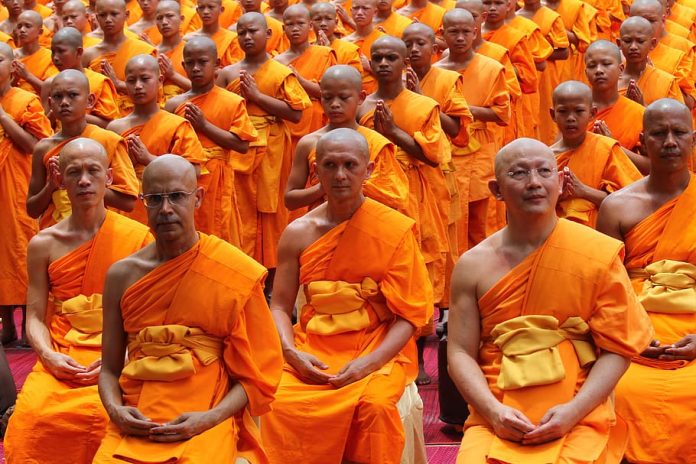The Zen of Thai Buddhism: How Religion Influences Thai Way of Life and ConductThai Buddhism is woven throughout Thailand’s remarkable cultural fabric, which is why it is frequently referred to as the “Land of Smiles.” The Thai people have been guided by this ancient religion, which has shaped their way of life, mannerisms, and even sense of self. This blog post delves into the significant influence that Thai Buddhism has on its adherents’ lives, examining not just its spiritual activities but also their impact on day-to-day living in Thailand.
Theravada Buddhism, often known as Thai Buddhism, has a history spanning more than 2,500 years. It has a special place in Thai society and is a subset of the larger Buddhist tradition. Buddhism permeates every aspect of Thailand, from the soaring golden temples called wats to the saffron-clad monks making their alms rounds.
Thai Buddhism is based on the idea that karma, or the law of cause and consequence, exists. This core conviction permeates Thai culture and daily life, transcending the sphere of spirituality. It acts as a compass, inspiring people to live moral lives, make meaningful contributions to society, and develop good karma for their next lifetimes.
Making merit, or “tam bun,” is a deeply rooted cultural practice in Thailand. Thai people look for ways to gain virtue including attending religious events, giving to temples, and helping monks. This activity develops a sense of community and social responsibility in addition to strengthening their spiritual bond.
The position of monks in Thai culture is one of the religion’s most obvious expressions. Monks are held in great regard and seen as moral exemplars and spiritual mentors. They commit their entire lives to studying, practicing, and propagating Buddhism. People can pursue enlightenment and break free from the cycle of rebirth by living as monks. The Thai people show their loyalty to the monks and aid in the upkeep and maintenance of the faith by lending their assistance.
The idea of mindfulness is also embraced by Thai Buddhism, which encourages practitioners to develop a greater awareness of their thoughts, feelings, and behaviors as well as to live in the present. Thai society has been greatly impacted by this emphasis on mindfulness, which has changed how individuals approach their daily lives. Mindfulness is ingrained in Thai society, from the polite “wai” greeting to the practice of meditation, all of which foster feelings of serenity, empathy, and contentment.
Furthermore, Thailand’s architecture and aesthetics have been influenced by Buddhism. Thai temples are visually stunning examples of the beauty and dedication of the religion, with their elaborate designs and bright paintings. These architectural wonders, which include the well-known Wat Arun and Wat Phra Kaew, are not just houses of worship but also important global tourist destinations due to their rich cultural legacy.
Thai Buddhism is significant not just from a religious and cultural standpoint but also because it has greatly influenced Thai society’s moral standards and ethical behavior. It strongly advocates for peace, kindness, and respect for all living things. These values are reflected in the friendly and hospitable demeanor of the Thai people, who have established a reputation for tolerance, friendliness, and hospitality.
Although there is no denying that Thai Buddhism has had an impact on Thai people’s way of life and behavior, it is crucial to remember that Buddhism is not a single, cohesive system. Buddhism can be interpreted and practiced differently by people, places, and communities. Nonetheless, the primary teachings of this religion continue to center around the concepts of compassion, mindfulness, and the search of enlightenment.
In summary, Thai Buddhism is a way of life that permeates every sphere of Thai society and goes beyond simple religious belief. Buddhism has left its mark on many aspects of Thai culture, from religious rites and merit-making to the love of beauty and the development of mindfulness. The Thai people have developed a distinctive way of life and conduct by adhering to the Zen school of Thai Buddhism, which has won them a special place in the hearts and thoughts of tourists from all over the world.


